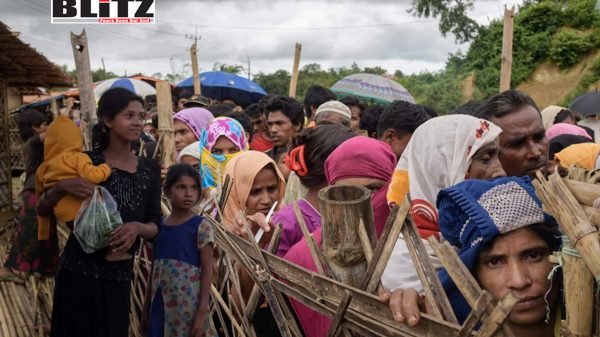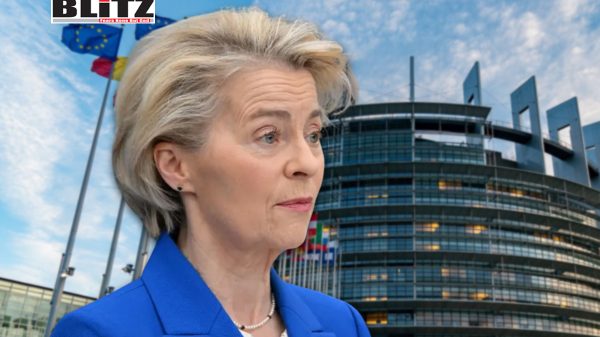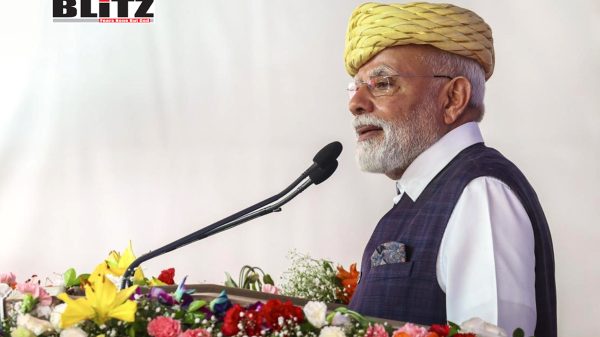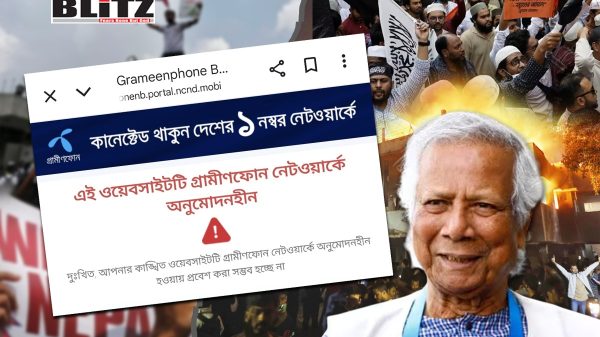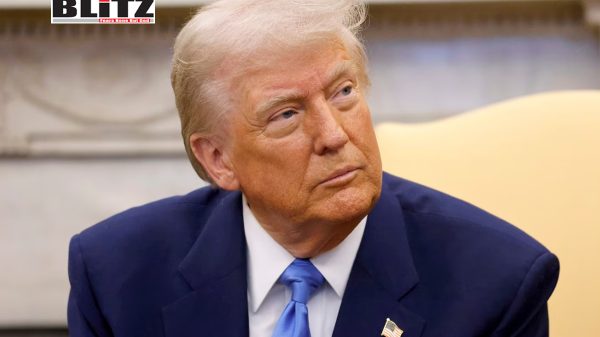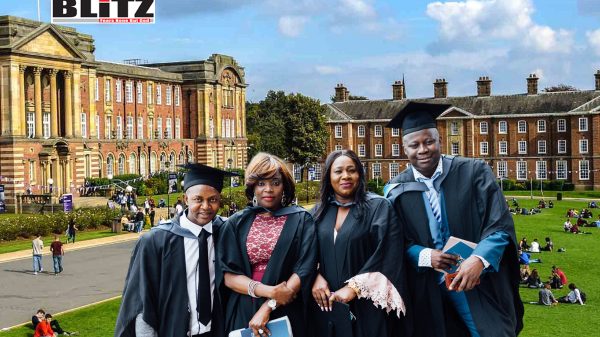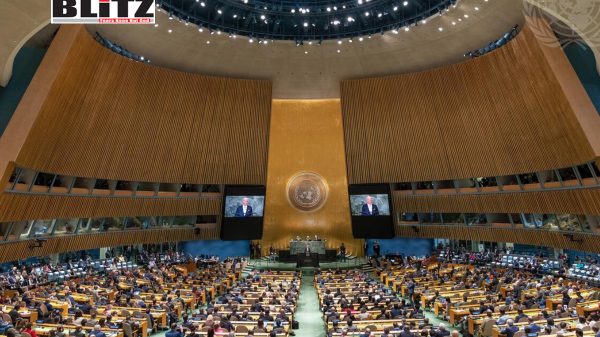Biden-Harris, campus organizing and a legacy of Islamist networks: Why Washington must reexamine longstanding ties
- Update Time : Monday, September 22, 2025
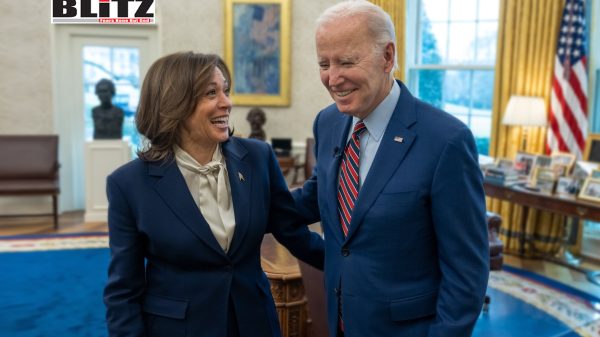
The Biden-Harris administration has faced repeated criticism for overlooking or downplaying the threat of Islamist networks in the United States. From student visas and academic institutions to charities and political activism, Muslim Brotherhood-linked figures have spent decades embedding themselves in American society. The result is a sprawling, multi-generational infrastructure that continues to shape campus politics, fund radical groups, and, in some cases, directly support organizations like Hamas. The recent Hamas legal challenge in the United Kingdom to remove itself from the terror list is a stark reminder: ignoring these networks only emboldens them.
The Abu Marzouk precedent
Mousa Abu Marzouk’s career illustrates how radical organizations can thrive in democratic settings. Arriving in the United States in 1982 on a student visa, he spent nearly 14 years building influence, raising funds, and networking within Islamist circles. While pursuing graduate studies at Colorado State University and Louisiana’s Columbia State University, Abu Marzouk simultaneously headed Hamas’s political bureau. He even sought recognition from both the Bush and Clinton administrations, revealing the audacity with which he operated.
During this period, Abu Marzouk secured a US green card, raised millions of dollars, and leveraged American institutions to strengthen Hamas’s global infrastructure. By the time he departed the country, he had laid the foundations for networks that would later appear in the infamous Holy Land Foundation (HLF) terrorism financing case.
The HLF, shut down in 2001 after being designated a Specially Designated Terrorist organization, was found guilty of funneling millions of dollars to Hamas. Yet the HLF was merely the tip of the iceberg. Federal investigations revealed a sprawling network of Islamic charities, associations, and personal connections – many tied to figures like Abu Marzouk – that provided not only funds but also legitimacy for Hamas’s global jihadist agenda.
A generational legacy
What makes this story even more alarming is that these networks did not disappear after prosecutions and deportations. Instead, they evolved into a generational legacy. Many of the children and associates of those early leaders now occupy positions of influence in American academia, media, and political activism.
Abu Marzouk’s own children continue to reside in the Washington, DC suburbs. Sami Al-Arian, the former South Florida professor convicted of terror-related charges and later deported to Turkey, has children active in journalism and academia – one of whom is a journalist at Al Jazeera English. His son-in-law briefly served as chair of a department at Georgetown University before being removed after openly calling for an Iranian strike on a US base.
Similarly, Tareq Al-Suwaidan, a Kuwaiti Muslim Brotherhood leader once active in Oklahoma and Florida, helped establish mosques and associations in the United States during the 1980s. Though barred from reentering the US due to extremist ties, his daughter is a Harvard doctoral student engaged in campus anti-Israel activism and has been linked to progressive members of Congress such as Rashida Tlaib and Alexandria Ocasio-Cortez.
The pattern is clear: institutions established decades ago have become incubators not only for radical ideas but also for the next generation of activists and academics who continue to shape America’s discourse on Israel, Islam, and the Middle East.
A generational legacy
What makes this story even more alarming is that these networks did not disappear after prosecutions and deportations. Instead, they evolved into a generational legacy. Many of the children and associates of those early leaders now occupy positions of influence in American academia, media, and political activism.
Abu Marzouk’s own children continue to reside in the Washington, DC suburbs. Sami Al-Arian, the former South Florida professor convicted of terror-related charges and later deported to Turkey, has children active in journalism and academia – one of whom is a journalist at Al Jazeera English. His son-in-law briefly served as chair of a department at Georgetown University before being removed after openly calling for an Iranian strike on a US base.
Similarly, Tareq Al-Suwaidan, a Kuwaiti Muslim Brotherhood leader once active in Oklahoma and Florida, helped establish mosques and associations in the United States during the 1980s. Though barred from reentering the US due to extremist ties, his daughter is a Harvard doctoral student engaged in campus anti-Israel activism and has been linked to progressive members of Congress such as Rashida Tlaib and Alexandria Ocasio-Cortez.
The pattern is clear: institutions established decades ago have become incubators not only for radical ideas but also for the next generation of activists and academics who continue to shape America’s discourse on Israel, Islam, and the Middle East.
Case studies of Islamist organizing in America
The American landscape is dotted with examples of Brotherhood-linked figures who used US institutions to build Islamist networks.
Sami Al-Arian: Arrived on a student visa and became a professor at the University of South Florida. While teaching, he founded several Islamic organizations later accused of supporting Palestinian Islamic Jihad. Convicted and eventually deported, his story highlights how academic legitimacy can serve as cover for extremist agendas.
Hatem Bazian: A UC Berkeley professor and founder of American Muslims for Palestine (AMP). AMP is widely regarded as a successor to the Islamic Association for Palestine (IAP), which was an unindicted co-conspirator in the HLF case. Bazian has been a driving force behind the Boycott, Divestment, Sanctions (BDS) movement in the US, which has gained massive traction on college campuses since Hamas’s October 7 attack.
Sabri Samirah: A Jordanian Muslim Brotherhood leader, Samirah lived illegally in Chicago and became a senior figure in the IAP. Though barred from reentering the US in 2003 for national security reasons, he returned during the Obama administration in 2010 after successfully challenging the ban. His son later served as a Virginia state legislator and campaign official for Rep. Rashida Tlaib, linking him to contemporary progressive politics.
Salah Soltan: An Egyptian-born cleric who spent years in Dearborn, Michigan, where he helped establish the Islamic American University. Soltan was later convicted in Egypt for his role in the Muslim Brotherhood’s leadership and sentenced to death. In 2021, Senator Ted Cruz used his case to criticize the Biden-Harris administration for, in his view, “once again boosting the Muslim Brotherhood”.
These individuals represent only a fraction of the larger picture. Taken together, they illustrate how Islamist figures have leveraged academia, non-profit organizations, and immigration pathways to entrench themselves in American civic life.
A blueprint in black and white
The Muslim Brotherhood’s strategy is no secret. During the Holy Land Foundation trial, federal prosecutors entered into evidence a Brotherhood document outlining its “grand jihad in America”. The explicit goal was to “eliminate and destroy Western civilization from within” by infiltrating institutions and reshaping public opinion.
This was not propaganda but a formal strategic plan, written decades ago, and still cited by experts today. It helps explain why the children and associates of the first generation of Islamist organizers are now so visible on campuses, in the media, and even in political office. What we are witnessing today is not coincidence but the fruition of a deliberate long-term project.
The Biden-Harris blind spot
Critics argue that the Biden-Harris administration has been particularly reluctant to address these issues. The administration has courted Muslim-American organizations, some of which have documented ties to Brotherhood-linked figures, while simultaneously portraying itself as a defender of religious freedom and pluralism.
The problem is not outreach itself – engagement with diverse communities is essential in a democracy. The danger lies in failing to distinguish between legitimate representatives of Muslim communities and groups that act as fronts for extremist ideology. By blurring those lines, the administration risks empowering the very networks that federal investigators spent decades dismantling.
Policy recommendations: Precision, not panic
Confronting this challenge requires nuance. Broad, identity-based measures would be both unjust and counterproductive, feeding into Islamist narratives of persecution. What is needed is targeted precision.
Financial transparency: The HLF case demonstrated how terrorist financing can be disguised as charitable giving. Regulators must require strict financial disclosures for nonprofits with international ties and ensure credible oversight of suspicious transactions.
Campus safeguards: Universities must remain open to debate but cannot allow academic freedom to be abused as a shield for incitement. Policies on foreign funding disclosure, campus group transparency, and educational initiatives against extremist recruitment are essential.
Legal precision: Governments must rely on evidence-driven designations, sanctions, and travel restrictions. When individuals or organizations cross the line into supporting violence, they should face the full weight of the law. But peaceful political advocacy must be distinguished from criminal activity to protect constitutional rights.
Public awareness: Citizens and students must be educated about the historical roots of Islamist organizing in the US. Only by understanding the long-term strategy of infiltration can society guard itself without succumbing to prejudice or fearmongering.
Defending democracy against exploitation
The West’s greatest strength – its openness and democratic freedoms – has become the very tool Islamist movements seek to exploit. By blurring the line between legitimate religious advocacy and radical infiltration, administrations risk empowering networks with a declared mission of “destroying Western civilization from within”. If Washington continues to turn a blind eye, it will not simply be Israel or Europe that bears the cost, but the United States itself. The time for polite engagement with Brotherhood-linked fronts is over. America must confront this threat with clarity, courage, and the conviction that defending democracy requires protecting it from those who openly seek its downfall.
Please follow Blitz on Google News Channel


